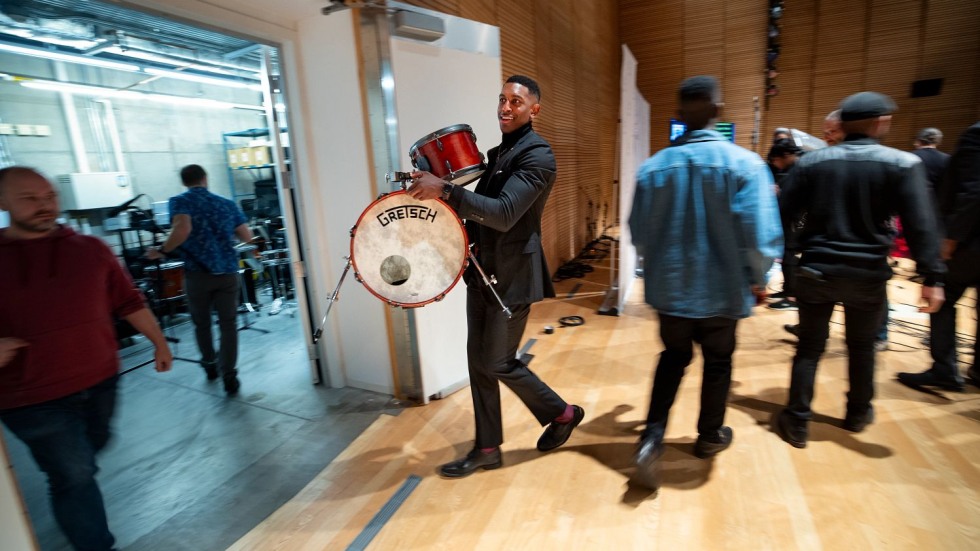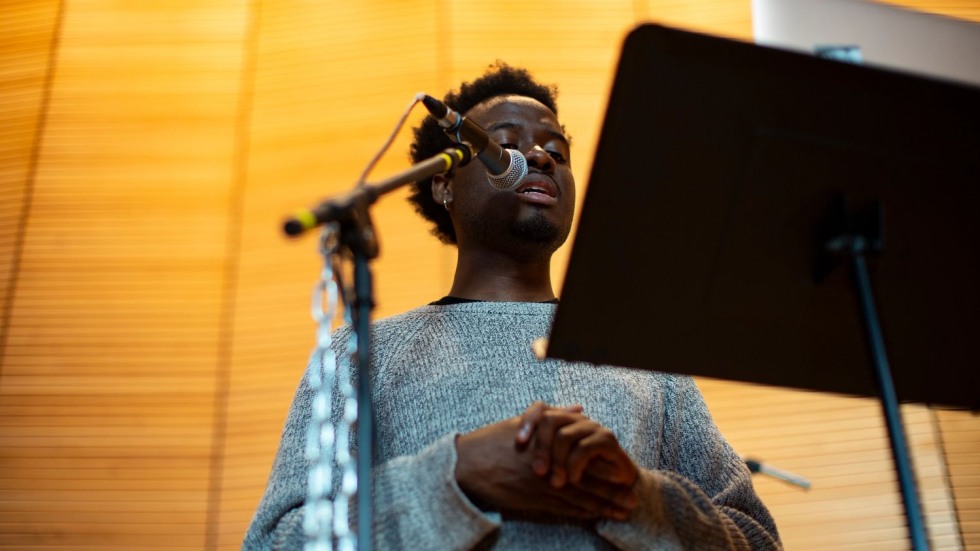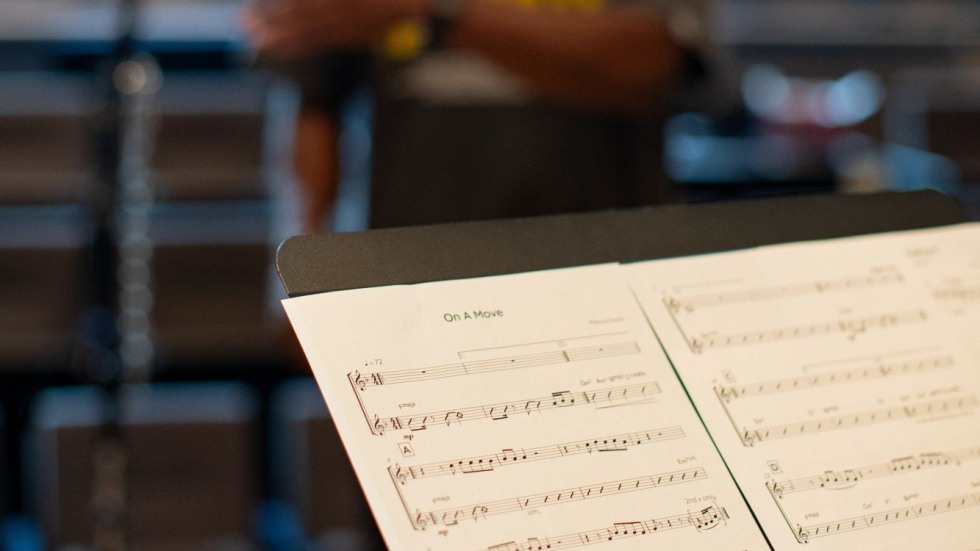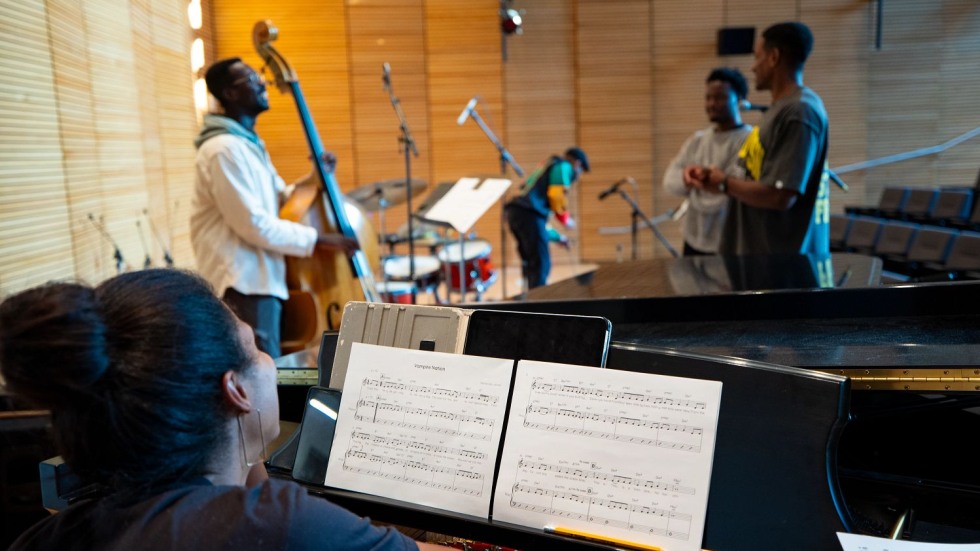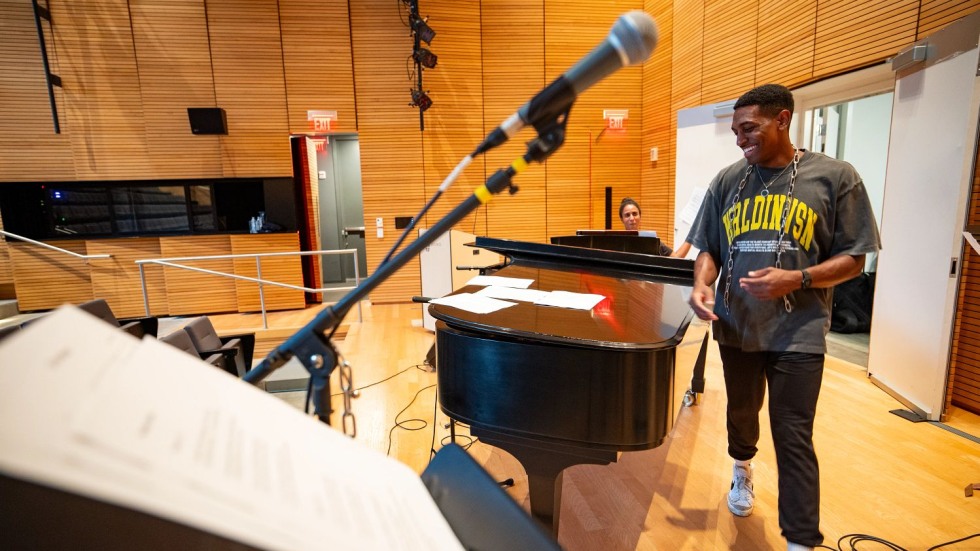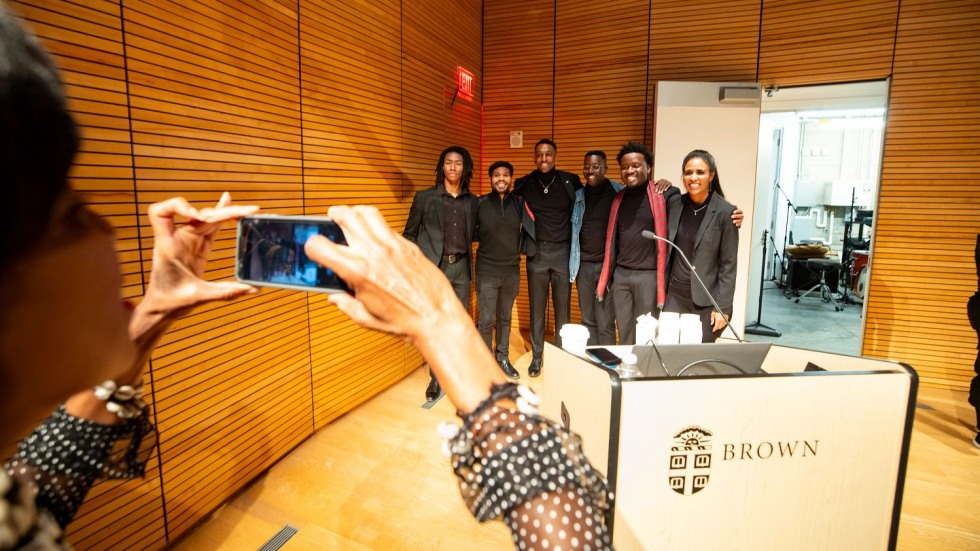PROVIDENCE, R.I. [Brown University] — Fourteen years ago, inside a 6-by-9-foot solitary confinement cell in Pennsylvania, Mumia Abu-Jamal taught himself how to read and write music using only books. The political activist, who has been imprisoned since a 1982 murder conviction, composed four original pieces, including “Vampire Nation,” a haunting piece about racial power imbalances in the United States.
The piece has never been performed — until now.
During a three-day symposium at Brown University focused on Abu-Jamal and the impact of the American carceral system, in-person and virtual audiences had the unique opportunity to hear the world premiere of “Vampire Nation,” arranged by Brown Ph.D. student, percussionist and composer Marcus Grant.
“It’s a commentary on America,” Grant said of the piece. “The title ‘Vampire Nation’ is this allusion to how settler colonialism was so focused on extraction that it sucked the life out of Black people and Native Americans. It goes through the whole history of extraction in America, starting with 1492 and chattel slavery and going all the way up to Jim Crow segregation.”
Grant, whose doctoral musicology studies focus on Black American protest music, said that six months ago he knew nothing about Abu-Jamal. That changed when, on the heels of his Spring 2023 performance of music by Nina Simone and Abbey Lincoln, leaders from Brown’s John Hay Library approached him with the invitation to arrange and perform “Vampire Nation.”
“A lot of the music of Abbey Lincoln and Nina Simone touches on topics surrounding civil rights, including critiques of the criminal justice system,” Grant said. “When I started looking into Mumia Abu-Jamal and his music, I saw lots of throughlines there. What’s unique about Mumia is that he is critiquing the criminal justice system from the inside, and it’s fascinating to think about how that has influenced his commentary.”
